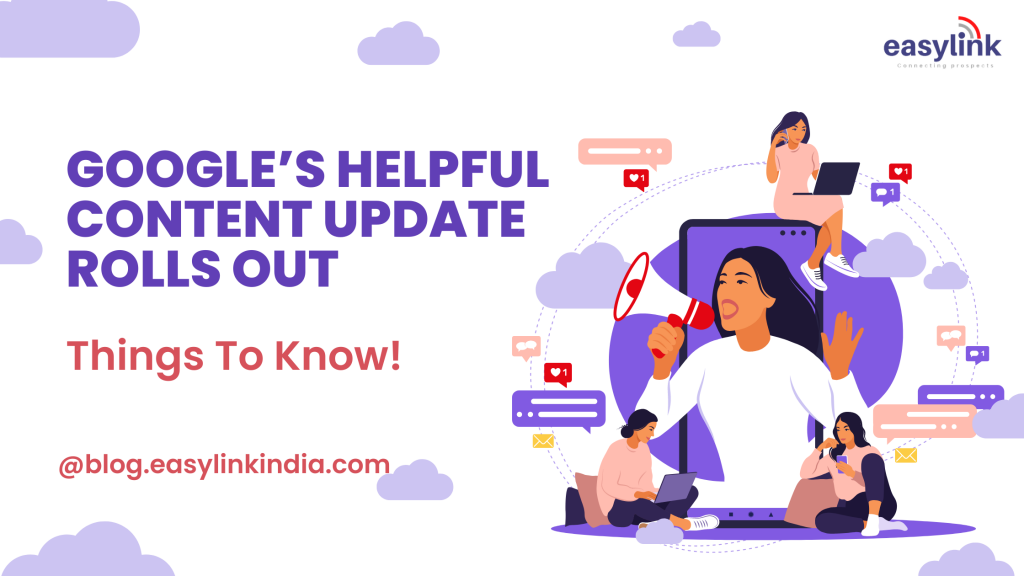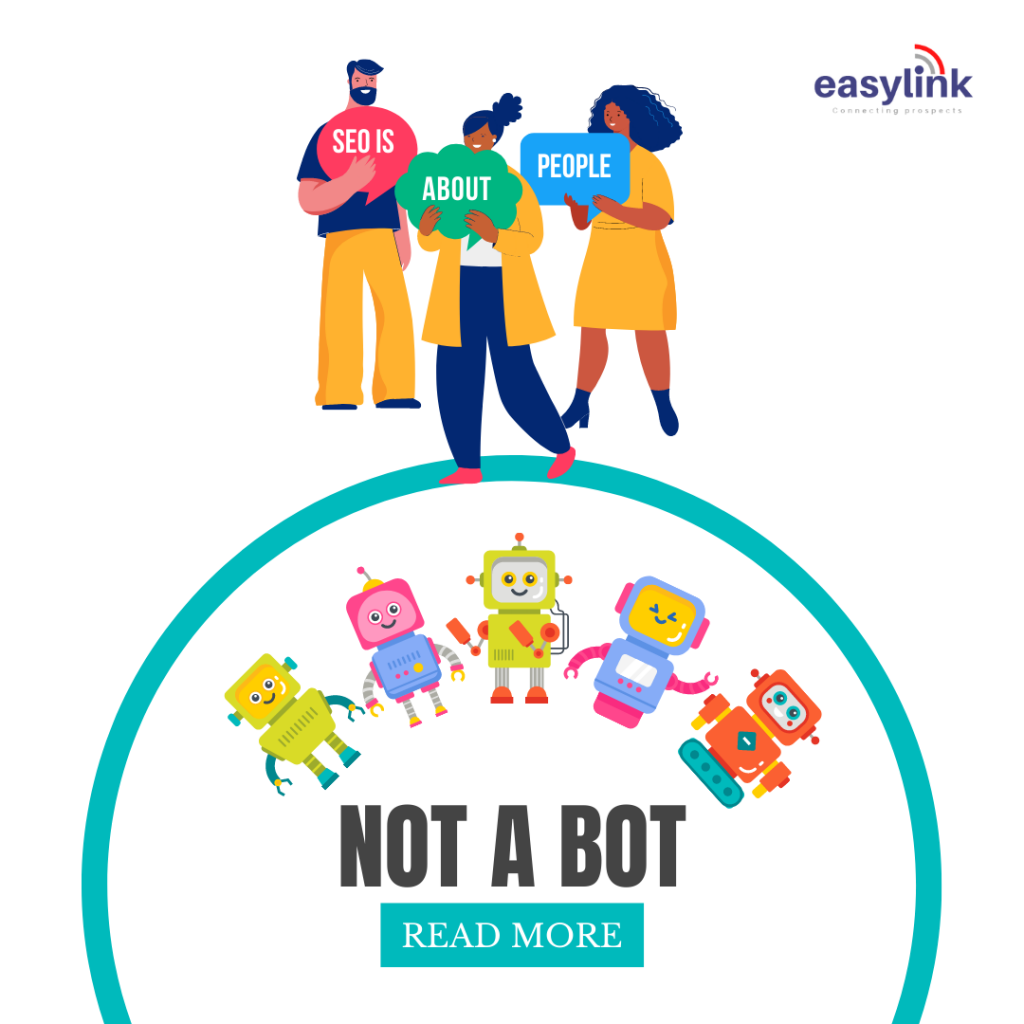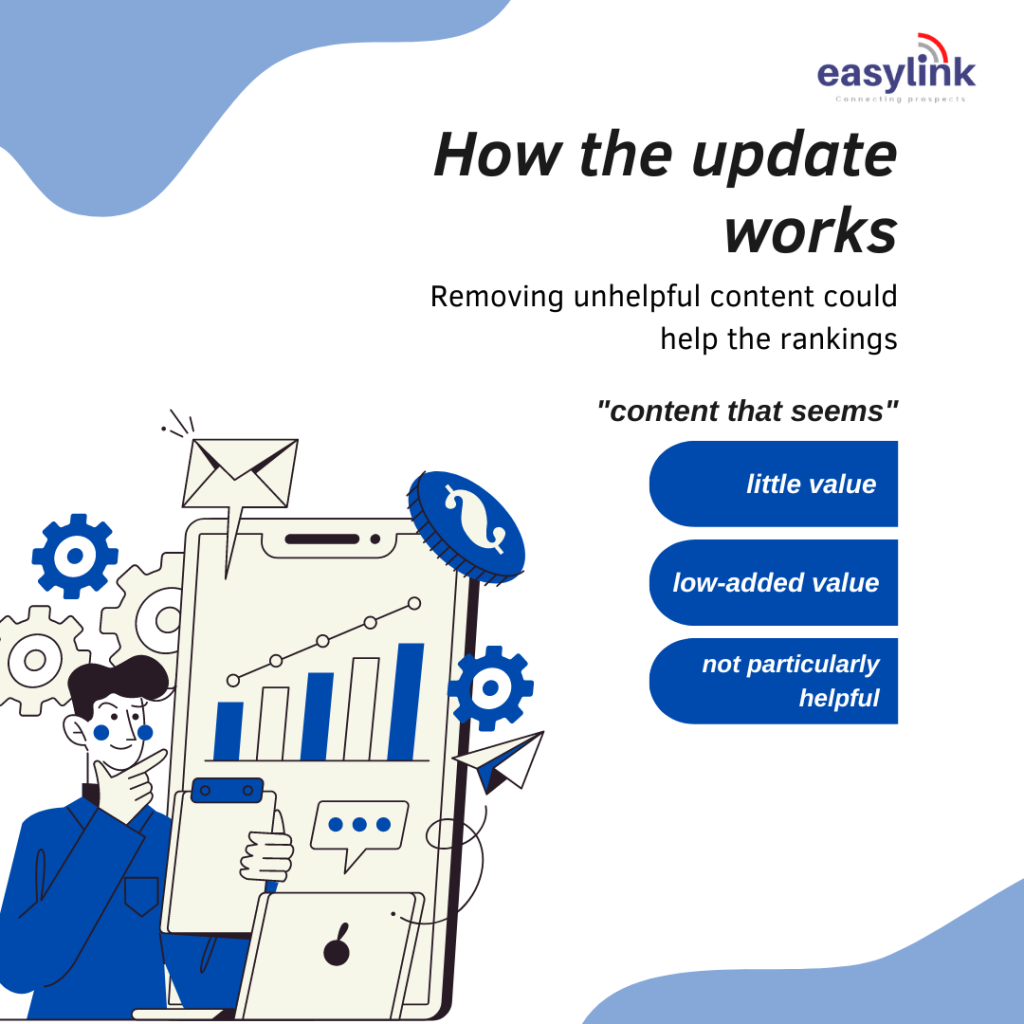
Google’s Helpful Content Update Rolls Out: Things To Know!
Last week, Google rolled out the helpful content algorithm update, which rewards people-first content and devalues content written for search engines. On its official search rankings update page, Google confirmed the release of helpful content on the 25th of August. So, here are things you should know to ensure that you are creating people-first content based on guidance provided by our very own Google.
1.) Do not move away too far from your main topic:
With this advice, Google is telling people to stick to their areas of expertise. Creating content for search engines means publishing articles outside your niche. For example, let’s say that you have a recipe website and see an opportunity to capitalize on a high-volume keyword that is related to skincare. While your article may be helpful, an existing audience that comes to your site expecting recipes would not find it helpful. In addition to this, Google also suggests asking yourself these questions:
1.) Is your content meant to attract people from search engines, rather than made for humans?
2.) Are you writing about things simply because they are trending and not because you would write about them otherwise for your existing clients?
3.) Have you decided to enter some niche topic area without any real expertise, but because you thought you would get search traffic?
2.) Demonstrate your first-hand experience:
With this advice, Google tells you not to write about something you have not personally experienced yet.
Creating content for search engines first can include writing about services and products that have not been used first-hand. These articles are accompanied by affiliate links which give the Author a commission. Since Author has no experience with what they are writing about, the content is not helpful as it could be. So, if you have experience with the services or product or about things you are writing about, make sure that it is sufficiently clear with real insights and pictures.
In addition to this, Google also suggests asking yourself this question:
Are you summarizing what others have to say by not adding much value?

3.) You should never combine multiple topics into the same website:
With this advice, Google is implying that websites should have their niche. Your website cannot do multiple things at the same time. Not only this is helpful to visitors, but also confusing for search engines who are trying to understand the site. So, build your site around one subject area. You can always construct multiple websites if you want to create content about different topics.
In addition to this, Google suggests asking you the following question:
Are you producing a lot of content on different topics that of it might function better in search results?
4.) Providing sufficient answers to searcher’s questions:
With this advice, Google tells people that your content is helpful when it teaches others something or helps accomplish a particular task. Creating content for search engines involves writing a lot without saying anything valuable. So, when you write content for people, you should help them by answering a question or resolving a concern which helps them in finding your website in the first place.
In addition to this, Google also suggests asking yourself these questions:
1.) Does your content leave readers to feel like they need to search again to get useful information from other relevant sources?
2.) Are you writing to a particular word count because you have read that Google prefers a certain word count? (No, it does not!)
5.) Do not neglect the overall reader experience:
With this advice, Google tells people to think about the overall experience of reading a writeup or content. It is possible to meet all the above criteria and still not give you a satisfactory experience.
For example, reading a product review with first-hand expertise does not include videos or photos. While searchers may appreciate the textual content, a visual demo of the product would finally complete the experience.
6.) Do not answer a question that has no confirmed answer:
With this thing, Google is cautioning websites against making claims that are not accurate.
Make it clear to the readers if you are writing about something that is rumored. In addition to complying with the helpful content update, this is good advice for maintaining trust with your audience.

The takeaway:
Google’s helpful content update affects English searches worldwide and will expand to other languages in the future. Google will also continually refine its efforts to detect unhelpful content.
So, for more updates keep following us or visit our website & keep yourself updated with the latest SEO happenings. Also, we would like to hear more from you. So, keep sharing your views and feedback too!